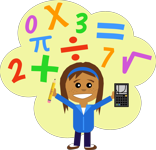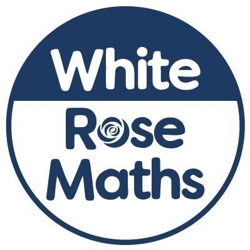Maths

The children in Years 1 and 2 follow the guidelines in the National Curriculum whereby every child receives quality maths teaching.
Through this we endeavour to provide a challenge and sense of achievement and enjoyment for all our pupils, enabling them to develop their full potential. Mathematics is an ideal area for developing skills in other subjects, promoting a logical and methodical approach and where possible is integrated into a meaningful topic framework.
Within EYFS, Maths is always encouraged through a range of planned and structured play situations, both independent and supported by teachers as play partners, where there is plenty of exploration. At Croftlands we ensure that we provide real-life and meaningful experiences, using practical hands-on resources.
Early mathematical experiences and explorations begin in the Early Years and are developed throughout the school following the National Curriculum Guidelines.
Children take part in concrete, practical activities to develop basic concepts of numbers, shape, space, measures (length, weight, capacity, time, money) and data handling. These are reinforced by more formal activities, where evidence of learning is recorded. Children learn to apply their understanding of number, shape, space and measures. Mathematical learning is promoted in other areas of the curriculum enabling children to realise that maths is an integral part of everyday life.
At Croftlands Infant School, we use White Rose Maths progressions and schemes of learning to inform our planning and teaching. As highlighted in the National Curriculum, all children must be able to access fluency, reasoning and problem solving. It’s therefore essential that we as teachers provide the support needed for every child to reason and problem solve.
Intent
At Croftlands Infant & Nursery School, we believe mathematics is an important part of children’s development throughout school, right from an early age.
We intend on delivering a curriculum which:
· Allows children to be a part of creative and engaging lessons that will give them a range of opportunities to EXPLORE mathematics following a mastery curriculum approach.
· Gives each pupil a chance to BELIEVE in themselves as mathematicians and develop the power of resilience and perseverance when faced with mathematical challenges.
· Recognises that mathematics underpins much of our daily lives and therefore is of paramount importance in order that children ASPIRE and become successful in the next stages of their learning.
· Engages all children and entitles them to the same quality of teaching and learning opportunities, striving to ACHIEVE their potential, as they belong to our school community.
· Makes rich connections across mathematical ideas to develop fluency, mathematical reasoning and competence in solving increasingly sophisticated problems.
· Provides equal opportunities for children to apply their mathematical knowledge to other subjects (cross-curricular links).
· Is in line with the expectations in the National Curriculum 2014.
Implementation
Our mastery approach to the curriculum is designed to develop children's knowledge and understanding of mathematical concepts from the Early Years through to the end of Y2.
Teaching and Learning, Content and Sequence
· In school, we follow EYFS Framework, Development Matters and National Curriculum and use White Rose Schemes of Work as a guide to support teachers with their planning and assessment.
· At the start of each new topic, key vocabulary is introduced and revisited regularly to develop language acquisition, embedding as the topic progresses.
· All lessons begin with a short assessment to support retrieval practice and develop long-term memory.
· Children are taught through clear modelling and have the opportunity to develop their knowledge and understanding of mathematical concepts. The mastery approach incorporates using objects, pictures, words and numbers to help children explore and demonstrate mathematical ideas, enrich their learning experience and deepen understanding at all levels.
· Children work on the objective at whatever entrance stage they are assessed as being at. Children can ACQUIRE the skill, APPLY the skill or DEEPEN the skill within the lesson.
· Children move through the different stages of their learning at their own pace.
· Children who have shown their understanding at a deep level within the unit, will have opportunities to apply these skills in a GREATER DEPTH activity. This should be challenging and ensure that children are using more than just one skill to be able to answer the mathematical problems.
· Reasoning and problem solving are integral to the activities children are given to develop their mathematical thinking.
· Resources are readily available to assist demonstration of securing a conceptual understanding of the different skills appropriate for each year group.
· Children are encouraged to explore, apply and evaluate their mathematical approach during investigations to develop a deeper understanding when solving different problems / puzzles.
· A love of maths is encouraged throughout school via links with others subjects, applying an ever growing range of skills with growing independence.
· Children with additional needs are included in whole class lessons and teachers provide scaffolding and relevant support as necessary. For those children who are working outside of the year group curriculum, individual learning activities are provided to ensure their progress. Leadership, Assessment and Feedback
· Assessment informs the teaching and learning sequence, and children work on the objectives they are assessed as being at, with fluid boosting available within a ‘keep up no catch up’ culture.
· Feedback is given on children’s learning in line with our feedback policy. Formative assessment within every lesson helps teachers to identify the children who need more support to achieve the intended outcome and who are ready for greater stretch and challenge through planned questioning or additional activities.
· In order to support teacher judgments, children may be assessed using current and reliable tests in line with the national curriculum for maths. Gap analysis of any tests that the children complete is undertaken and fed into future planning.
· Summative assessments are completed at the end of the academic year and reported to parents in the end of year report.
· The maths leader has a clear role and overall responsibility for the progress of all children in maths throughout school. Working with SLT, key data is analysed and regular feedback is provided, to inform on progress and future actions.
Impact
· Children demonstrate a quick recall of facts and procedures. This includes the recollection of the times table.
· Children show confidence in Believing that they will achieve.
· Each child achieves objectives (expected standard) for year group.
· The flexibility and fluidity to move between different contexts and representations of maths.
· The chance to develop the ability to recognise relationships and make connections in maths lessons.
· Mathematical concepts or skills are mastered when a child can show it in multiple ways, using the mathematical language to explain their ideas, and can independently apply the concept to new problems in unfamiliar situations.
· Children show a high level of pride in the presentation and understanding of the work

Click here for the EYFS Maths Curriculum
Click here for the KS1 Maths Curriculum.
Click here for the White Rose Maths progression maps and schemes of learning.
Click here for 'Mathematics' within Birth to 5 Matters Birth to 5 Matters
Maths Policy
Intent, Implementation, Impact
White Rose Maths Reception Overview
White Rose Maths Year 1 Overview
White Rose Maths Year 2 Overview

